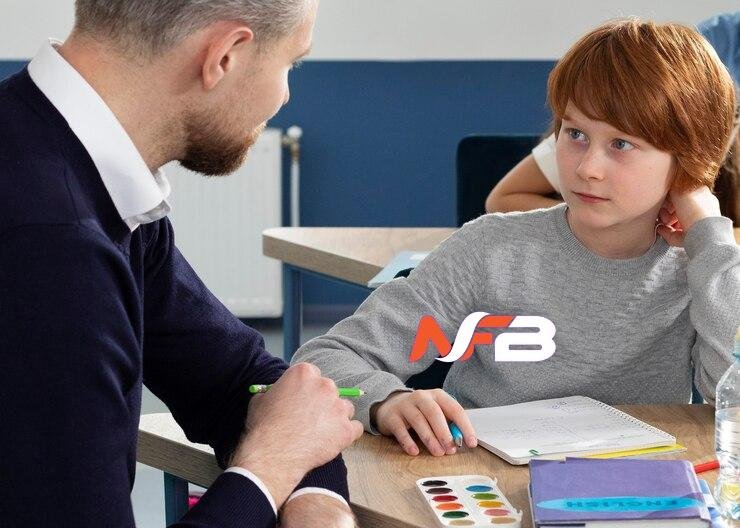Child welfare cases are among the most complex and sensitive legal matters, involving the safety and well-being of children who are at risk of abuse, neglect, or other forms of harm.
In these cases, Child Protective Services (CPS) lawyers play a crucial role in navigating the legal system and ensuring that the rights of children and families are protected. In this article, we’ll explore the intricate landscape of child welfare and the indispensable role that CPS lawyers play in this realm.
Understanding Child Welfare Cases
Child welfare cases typically arise when concerns are raised about the safety or well-being of a child.
These concerns may be reported to CPS by mandated reporters, such as teachers, healthcare professionals, or neighbors, or they may come to light through other means.
Once a report is made, CPS conducts an investigation to determine whether the child is at risk and whether intervention is necessary to ensure their safety.
The Role of CPS Lawyers
CPS lawyers are legal professionals who specialize in representing CPS agencies in child welfare cases.
They work closely with social workers, investigators, and other professionals involved in the case to ensure that the best interests of the child are served while also upholding the rights of the family members involved.
Key Responsibilities of CPS Lawyers
Legal Advocacy: CPS lawyers provide legal representation for CPS agencies in court proceedings related to child welfare cases. They present evidence, argue legal points, and advocate for the agency’s position in hearings and trials.
Case Management: CPS lawyers oversee the legal aspects of child welfare cases,
ensuring that all necessary legal procedures are followed and that deadlines are met.
They may also coordinate with other parties involved in the case, such as foster parents, therapists, and service providers.
Legal Advice and Guidance: CPS lawyers provide legal advice and guidance to CPS workers and other professionals involved in child welfare cases.
They help ensure that all actions taken by CPS are in compliance with relevant laws and regulations.
Negotiation and Settlement: In some cases, CPS lawyers may negotiate settlements with the parents or guardians of the child, outlining specific actions they must take to address safety concerns and prevent future harm.
These agreements may involve participation in counseling or other services, regular visits from CPS workers, or other conditions.
Courtroom Representation: CPS lawyers represent CPS agencies in court proceedings, including hearings to determine whether a child should be removed from their home, hearings to review the progress of a case, and trials if the case goes to court.
They present evidence, question witnesses, and make legal arguments on behalf of the agency.
Challenges and Considerations
Navigating child welfare cases can be incredibly challenging due to the complex legal and emotional issues involved. CPS lawyers must balance the need to protect children from harm with the rights of parents and families.
They often work under tight deadlines and may face resistance or hostility from parents who are fearful of losing custody of their children.
Addressing Legal Complexity
Child welfare cases often involve complex legal issues, including parental rights, custody arrangements, and child protection laws.
CPS lawyers are well-versed in navigating these legal complexities and ensuring that all parties involved understand their rights and responsibilities.
They interpret and apply state and federal laws governing child welfare to ensure that CPS actions are legally sound and that children are adequately protected under the law.
Balancing the Needs of Children and Families
One of the most challenging aspects of CPS lawyering is balancing the needs of children with the rights of parents and families. CPS lawyers must advocate for the safety and well-being of children while also respecting the rights of parents to due process and fair treatment.
This delicate balance requires careful consideration of the facts and circumstances of each case, as well as a nuanced understanding of family dynamics and the impact of intervention on all parties involved.
Collaboration with Multiple Stakeholders
Child welfare cases often involve collaboration with multiple stakeholders, including social workers, judges, attorneys for the parents, and other professionals.
CPS lawyers must effectively communicate and collaborate with these stakeholders to ensure that the needs of children are met and that cases progress smoothly through the legal system.
They may participate in case conferences, attend meetings with other professionals, and coordinate services for children and families involved in the case.
Protecting Children’s Rights
At the heart of their work, CPS lawyers are advocates for the rights of children. They work tirelessly to ensure that children are protected from harm and that their voices are heard in court proceedings.
CPS lawyers may advocate for children to be placed in safe and stable environments, to receive necessary medical or mental health care, and to have their best interests considered in all decisions made by the court.
Supporting Families Through Crisis
While CPS lawyers are tasked with protecting children from harm, they also recognize the importance of supporting families through crisis. They may work with parents to address underlying issues, such as substance abuse or mental illness, that contribute to child welfare concerns.
CPS lawyers may advocate for parents to receive support services, such as counseling or parenting classes, to help them address these issues and reunify with their children whenever possible.
Conclusion
In child welfare cases, CPS lawyers play a crucial role in navigating the complexities of the legal system and ensuring that children are protected from harm.
Through their legal advocacy, case management, and negotiation skills, CPS lawyers work tirelessly to ensure that the best interests of children are served while also upholding the rights of families.














Leave a Reply